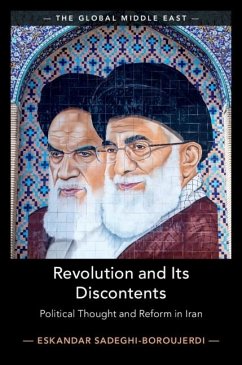The death of the Islamic Republic's revolutionary patriarch, Ayatollah Khomeini, the bitter denouement of the Iran-Iraq War, and the marginalisation of leading factions within the political elite, in tandem with the end of the Cold War, harboured immense intellectual and political repercussions for the Iranian state and society. It was these events which created the conditions for the emergence of Iran's post-revolutionary reform movement, as its intellectuals and political leaders sought to re-evaluate the foundations of the Islamic state's political legitimacy and religious authority. In this monograph, Sadeghi-Boroujerdi, examines the rise and evolution of reformist political thought in Iran and analyses the complex network of publications, study circles, and think-tanks that encompassed a range of prominent politicians and intellectuals in the 1990s. In his meticulous account of the relationships between the post-revolutionary political class and intelligentsia, he explores a panoply of political and ideological issues still vital to understanding Iran's revolutionary state, such as the ruling political theology of the 'Guardianship of the Jurist', the political elite's engagement with questions of Islamic statehood, democracy and constitutionalism, and their critiques of revolutionary agency and social transformation.
Dieser Download kann aus rechtlichen Gründen nur mit Rechnungsadresse in A, B, BG, CY, CZ, D, DK, EW, E, FIN, F, GR, HR, H, IRL, I, LT, L, LR, M, NL, PL, P, R, S, SLO, SK ausgeliefert werden.









